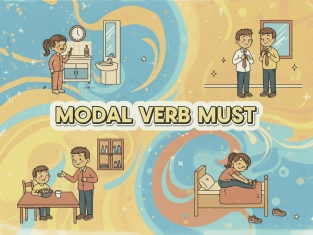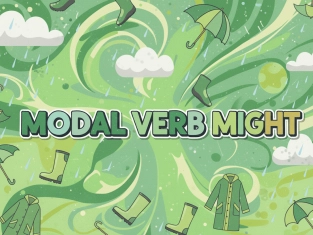Modal Verb Have to
Table of Contents
Exercises
Explanation
The modal verb "Have to" is used
Present (Now)
Use have to or has to to say that something is necessary now.
I have to wake up early every day.
She has to do her homework before dinner.
We have to wear seat belts in the car.
He has to feed the dog after school.
Past (Before Now)
Use had to to talk about something that was necessary in the past.
I had to take a taxi because the bus was late.
We had to clean the classroom yesterday.
He had to go to the dentist last week.
Future (Later)
Use will have to to talk about something that will be necessary in the future.
I will have to get up early tomorrow.
You will have to study more for the next test.
They will have to move to a new apartment soon.
Negative (Not Necessary)
Use don’t/doesn’t have to or didn’t have to to say that something is not necessary. It means you can, but you don’t need to.
You don’t have to come if you’re tired.
She doesn’t have to cook today — we’re eating out.
We didn’t have to go to school yesterday because it was a holiday.
Questions
Use Do / Does / Did / Will + subject + have to + verb?
Do you have to wear a uniform at work?
Does he have to pay for the ticket?
Did they have to walk home last night?
Will I have to take the exam again?
Form Summary
|
Time |
Form |
Example |
|
Present |
have to / has to |
He has to study for his test. |
|
Past |
had to |
We had to leave early. |
|
Future |
will have to |
I will have to travel next week. |
|
Negative |
don’t/doesn’t/didn’t have to |
You don’t have to hurry. |
|
Question |
Do/Does/Did/Will + have to |
Do we have to pay now? |
Tip
-
Have to = rule or situation you can’t change
I have to wear glasses to read. -
Must = something you feel is personally important
I must call my mom tonight.

